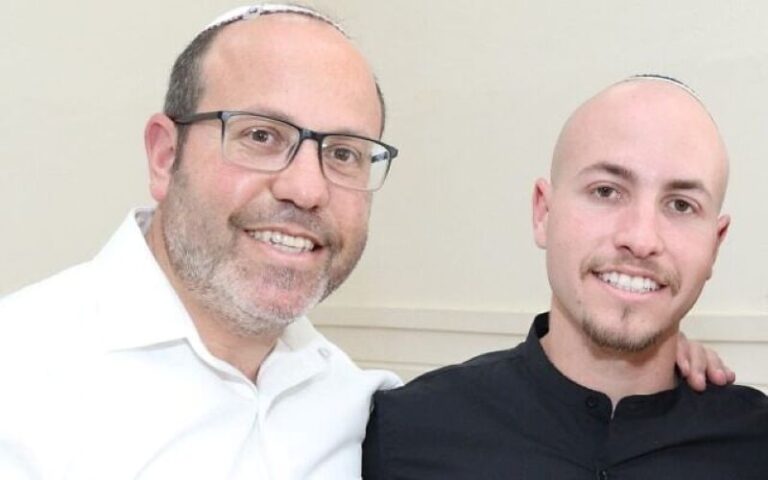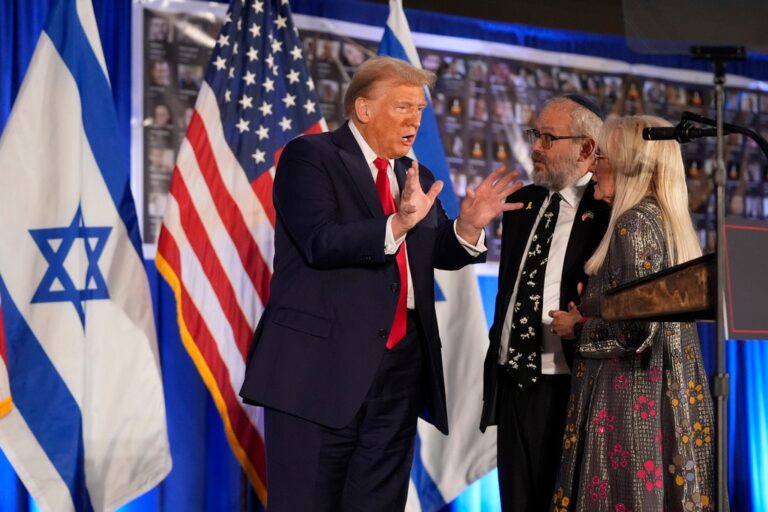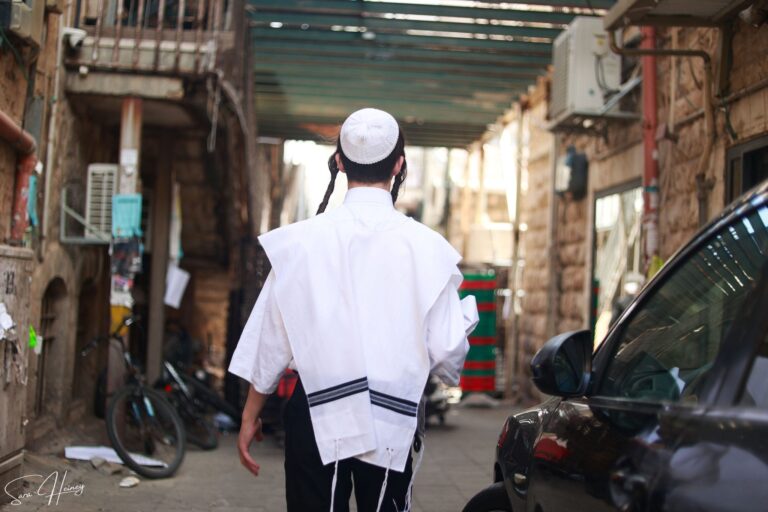Havah nis’chakmah lo (1:10)
In the early days of the state of Israel, one of the most painful episodes for religious Jewry was known as “Yaldei Teheran,” when it was revealed that the virulently anti-religious government was forcefully separating a large number of immigrant children from their religious traditions. The Brisker Rav was one of those who led the protests. At one point it was suggested that because the efforts were taking a severe toll on his health and his screams didn’t appear to be improving the situation, perhaps he should leave this battle to others while he recovered his precious health.
The Brisker Rov answered that the Gemora in Sotah (11a) records that three of Pharaoh’s advisors were consulted regarding his concerns about the Jewish population. Bilaam suggested the wicked plan and was ultimately punished by being killed, Iyov remained silent and was punished with tremendous afflictions, and Yisro fled because he disagreed with the plan and was rewarded with descendants who were righteous Torah scholars and judges. Why was Iyov punished so harshly when he did nothing to endorse the plan and any protests he made wouldn’t have helped, as evidenced by the fact that Yisro was also unsuccessful in battling the plan and was forced to flee?
The Brisker Rov explained that human nature is such that a person who feels intense pain will scream out instinctively even though he knows that his cries won’t help relieve his anguish in the slightest. The fact that Iyov was able to remain present at the deliberations over the horrible suffering to be meted out to the Jewish slaves and remained silent revealed that he didn’t feel a drop of pain over their fate and didn’t join in sharing their suffering, and for that he was punished harshly. The Brisker Rov concluded that while his screams might not be improving the difficult situation, he had no choice but to continue crying out due to the intense pain he felt at the unjust treatment of his religious brethren.
V’hinei na’ar bocheh va’tachmol alav vatomer mi’yaldei ha’Ivrim zeh (2:6)
In eulogizing his beloved teacher Rav Moshe Feinstein, Rav Nissan Alpert observed that many people complained that Rav Moshe was so overly generous in writing haskamos (letters of approbation) for newly-published books that they proved nothing and were essentially worthless. Rav Nissan suggested that Rav Moshe constantly acted based on his desire to do kindness and help another Jew rather than conducting himself according to the strict letter of the law. He therefore preferred to write approbations whenever possible without extensively analyzing the text to confirm its merit and value.
Rav Alpert likened this philosophy to that which was exemplified by Pharaoh’s daughter. Upon descending to the river, she heard a crying infant and immediately went to assist him and remove him from the river. Only after acting with mercy and helping a baby in need did she pause to look at the child and identify him as a Jewish infant.
When approached for a charitable contribution or to assist with our time, how many times do we first look over the beggar or analyze the worthiness of the organization and turn them away empty-handed due to a lack of perceived merits? Let us learn from the ways of Pharaoh’s daughter and Rav Moshe Feinstein that we should act first and foremost with kindness without extensive analysis of the recipient’s merit. This should arouse Hashem to reciprocate by similarly treating us with compassion without an in-depth examination of our merits.
Vayavo’u ha’roim vayegarshum vayakam Moshe vayoshi’an (2:17)
The Be’er Yosef points out the tremendous hashgacha pratis (Divine Providence) involved in the match between Moshe and his wife Tzipporah. While he was still a baby growing up in the house of Pharaoh, the Medrash relates (Shemos Rabbah 1:26) that Moshe removed the crown from Pharaoh’s head and placed it on his own. Pharaoh’s advisers all argued that he should be killed, as his actions seemed to forebode a future of usurping Pharaoh’s power.
A sole advisor, however, suggested that Moshe wasn’t old enough to know what he was doing. He recommended testing the young child by placing before him two plates, one full of gold coins and the other with burning coals, to see how developed his mind was. Moshe began to reach for the coins until an angel saved him by directing his hand toward the coals, thereby proving the hypothesis that he wasn’t to be held responsible for his actions at his young age. That advisor was none other than Yisro, whose actions saved the life of his future son-in-law.
Years later, Yisro’s daughters were watering their flock from the well when another group of shepherds came along and drove them away. The Medrash relates (Shemos Rabbah 1:32) that they actually attempted to kill Yisro’s daughters by throwing them into the well. Moshe didn’t only draw water from the well for their sheep, but he also pulled them from the well to save their lives, unknowingly rescuing his future wife. This Medrash opens our eyes to another interesting similarity between Moshe and his wife: both of their lives were saved by being drawn out of the water. A few years later, on the return trip to Egypt, an angel sought to kill Moshe for not circumcising his son (Rashi 4:24-26). This time, it was Tzipporah who returned the favor and saved Moshe’s life by circumcising their son.
Vaya’an Moshe vayomer v’hein lo ya’aminu li v’lo yishme’u b’koli (4:1)
There was once a time when the only elite yeshiva in all of Europe was the renowned Volozhin yeshiva, and the Rabbis of virtually every large, prestigious Jewish community were counted among its alumnae. The married students learning there knew that after a number of years, as their families grew, the time would come when they would need to seek out a community in need of a Rav. During this period, there was a meeting of the top married scholars in Volozhin to discuss whether or not, in addition to their normal Talmudic and legal studies, they should also engage in the study of oratorical skills which would assist them in their future positions.
Rav Zalman Sorotzkin introduced his opinion by asking why Moshe, in his humble attempt to decline the position of redeemer of the Jewish people, began by expressing his concern that the Jews wouldn’t believe that Hashem appeared to him? If he would later claim (4:10) that his speech impediment rendered him unfit for the job regardless of whether they believed his words, why didn’t he begin with that concern? Rav Sorotzkin explained that if the Jewish people had proper belief in Hashem, Moshe’s speaking difficulties wouldn’t deter them. It was only because of a concern that they would be lacking in faith that his speech became an issue.
Returning to the subject at hand, Rav Sorotzkin pointed out that in previous generations the average Jew had a simple, unwavering belief in Hashem and an implicit trust in the decisions of the community Rav. Under these conditions, it was unnecessary for the Rabbonim to excel in their oratorical skills. As long as they knew the relevant laws and rendered honest decisions, the people would accept their verdicts. However, Rav Sorotzkin concluded, we are now witnessing an unprecedented drop-off in the level of trust and faith exhibited by the average Jew. Moshe teaches us that in such a case difficulty in public speaking will indeed be considered a deficiency, and we’d better dedicate time and energy to honing our speaking skills.
Answers to the weekly Points to Ponder are now available!
To receive the full version with answers email the author at [email protected].
Parsha Points to Ponder (and sources which discuss them):
1) The Baal HaTurim writes (1:1) that the first verse in the parsha hints to the weekly mitzvah of reviewing the Torah portion, as the letters in the word “Shemos” can be expanded to read “Shnayim Mikra v’echad Targum” – reading the weekly portion twice and the Aramaic translation once. Why did the Sages require a person to read the words of the parsha twice, and the Aramaic translation once? (Mateh Moshe 464, Pri Megadim Mishbetzos Zahav 285:2)
2) Rashi writes (2:1) that when Pharaoh decreed that all Jewish male children should be killed, Amram divorced his wife Yocheved. The Gemora in Berachos (10a) relates that Yeshayahu was sent to visit Chizkiyahu and inform him that he would soon die and forfeit his portion in the World to Come for neglecting to fulfill the mitzvah to have children. Chizkiyahu explained that he had seen through Divine Inspiration that any children he would have would be wicked. Yeshayahu responded that our job is to perform the mitzvos without calculations, and to leave the results to Hashem. Why wasn’t there a similar accusation against Amram for divorcing his wife and refusing to have children for fear that they would be killed? (M’rafsin Igri)
3) When Pharaoh’s daughter opened Moshe’s basket, she noticed that he was crying. Rashi writes (2:6) that although he was only three months old, his voice was that of a youth. In what way was the voice of Moshe, a 3-month-old infant, similar to that of an adolescent? (Imrei Daas)
4) When Hashem revealed Himself to Moshe at the burning bush (3:5), was it with the unsurpassed level of prophecy that Moshe ultimately attained, or did he not reach this level until the giving of the Torah at Mount Sinai? (Ramban 3:5, Rambam Hilchos Avodas Kochavim 1:3, Imrei Deah)
© 2012 by Oizer Alport.










